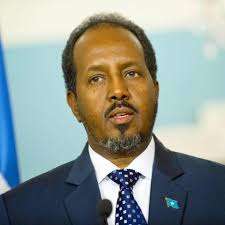Somalia has been grappling with political instability and conflict for decades. However, there has been a glimmer of hope for the country as it undergoes significant political change in recent years. This blog will explore the political changes that have taken place in Somalia and the challenges that still lie ahead.
In 2012, Somalia held its first presidential election since 1969, marking a major milestone in the country’s political history. The election of President Hassan Sheikh Mohamud, a former academic and civil society activist, was seen as a significant step towards rebuilding the country’s institutions and establishing a stable government.

Under President Mohamud’s leadership, Somalia made some progress in areas such as security, economic development, and governance. The government launched a National Development Plan to address the country’s long-standing challenges, including poverty, unemployment, and corruption. The government also established a number of new institutions, including the National Independent Electoral Commission and the Anti-Corruption Commission.
However, despite these positive developments, Somalia still faces significant challenges. One of the biggest challenges is the ongoing conflict with the Islamist group Al-Shabaab, which has been waging a violent insurgency against the government since 2006. The group has carried out numerous terrorist attacks, including bombings and assassinations, and has been able to control large parts of the country.
Another major challenge is the issue of federalism. Somalia is a federal republic, with a central government and five federal member states. However, there is an ongoing tension between the central government and the federal member states, with disputes over power-sharing, resource allocation, and territorial boundaries. These disputes have led to political instability and violence, and have hindered the government’s efforts to implement its development agenda.
Despite these challenges, there have been some positive signs of progress in recent years. In 2020, Somalia held its first one-person, one-vote election in over 50 years, with the election of President Mohamed Abdullahi Mohamed, also known as “Farmajo”. The election was seen as a significant step towards consolidating democracy in the country, although it was marred by allegations of irregularities and political tensions.
President Farmajo’s administration has continued to prioritize security, economic development, and governance, with a focus on strengthening institutions, promoting reconciliation, and fighting corruption. The government has also launched a number of initiatives aimed at addressing the root causes of conflict and promoting peacebuilding, including the National Reconciliation Framework and the National Security Architecture.
However, there is still a long way to go before Somalia can achieve lasting stability and prosperity. The country remains one of the poorest in the world, with high poverty, unemployment, and inequality levels. The ongoing conflict with Al-Shabaab and other armed groups continues to pose a significant threat to the security and stability of the country.
Moreover, the COVID-19 pandemic has had a devastating impact on Somalia, exacerbating existing challenges and creating new ones. The pandemic has disrupted the country’s fragile healthcare system, weakened the economy, and increased the vulnerability of the population to poverty and food insecurity.

In conclusion, Somalia has undergone a significant political change in recent years, with the election of two presidents and the establishment of new institutions. However, the country still faces significant challenges, including ongoing conflict, political tensions, and socioeconomic issues. To overcome these challenges, the government and other stakeholders must work together to promote peace, reconciliation, and good governance, while addressing the root causes of conflict and poverty. With determination, hard work, and a commitment to change, Somalia can realize its potential and become a stable and prosperous country.
